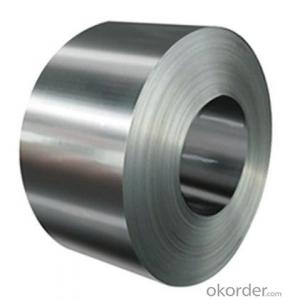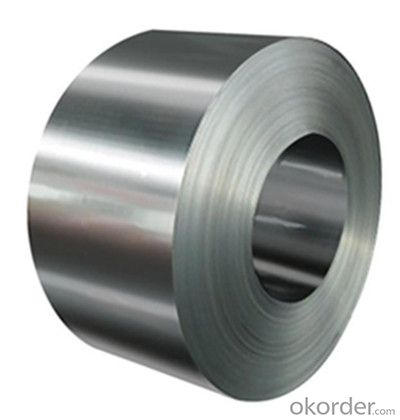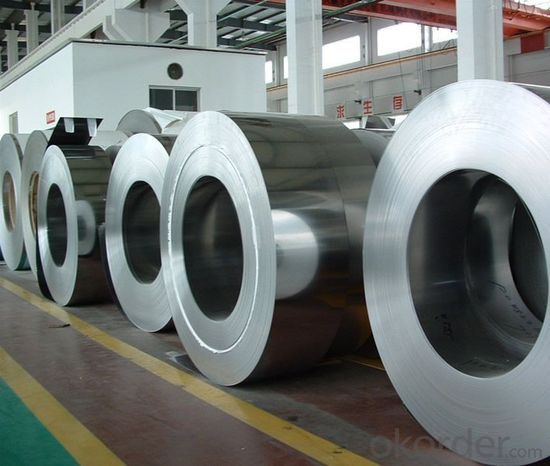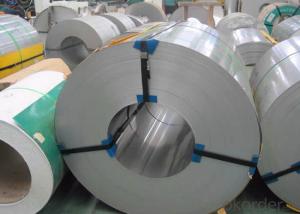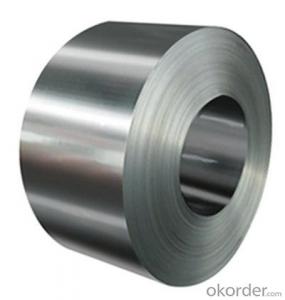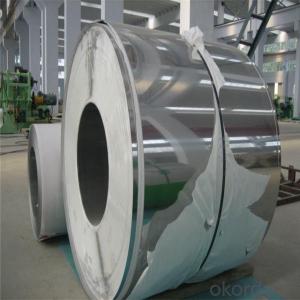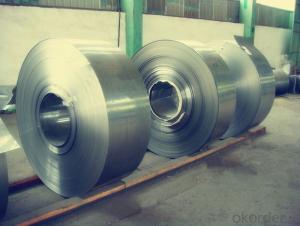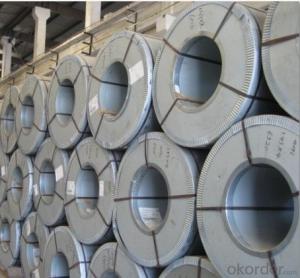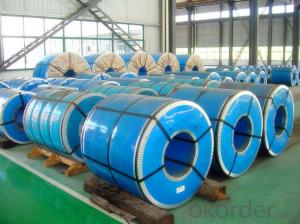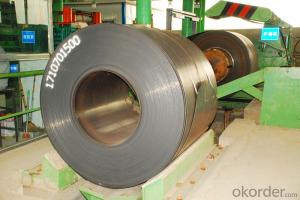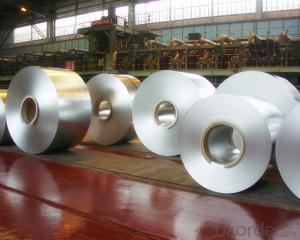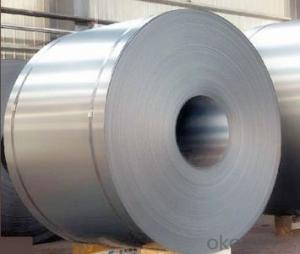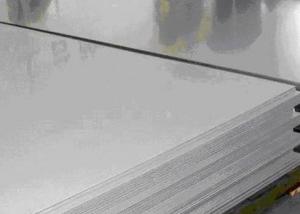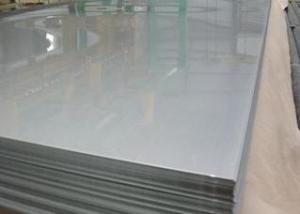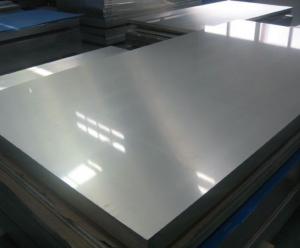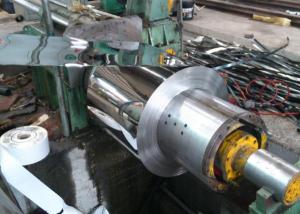Stainless Steel Coil 201 Hot / Cold Rolled Coil Narrow Coil
- Loading Port:
- Lianyungang
- Payment Terms:
- TT OR LC
- Min Order Qty:
- 400 m.t.
- Supply Capability:
- 5000 m.t./month
OKorder Service Pledge
OKorder Financial Service
You Might Also Like
Hot Rolled Stainless Steel Coil 201 Narrow Strip No.1 Finish
Packaging Detail: For customer's requirement
Delivery Detail: 10-30days
201 Hot Rolled Stainless Steel Coil Specifications
THK:2.3/2.5/3.0/4.0mm
Width:485/510/550/610/1010/1240mm
Face:No.1
201 Hot rolled Stainless Steel Coil Application
Stainless steel is a production which not easy rust,acid resistance and corrosion resistance,so it is widely
used in light industry,heavy industry,daily necessities and the decoration industry.
201 Hot Stainless Steel Coil Chemical Composition(WT%)
(C):≤0.15, (Si):≤0.75, (Mn):5.5~7.50, (Cr):16.0~18.0, (N):≤0.25, (Ni):3.50~5.50, (P):≤0.060, (S):≤0.030
201 Hot Rolled Stainless Steel Coil
Strength Of Extension:100,000 To 180,000 Psi;
Yield Strength:50,000 To 150,000 Psi
Elongation :55 To 60%;
Modulus Of Elasticity:29,000,000 Psi;
Density :.280lbs/Cubic Inch(7.93g/Cm3)
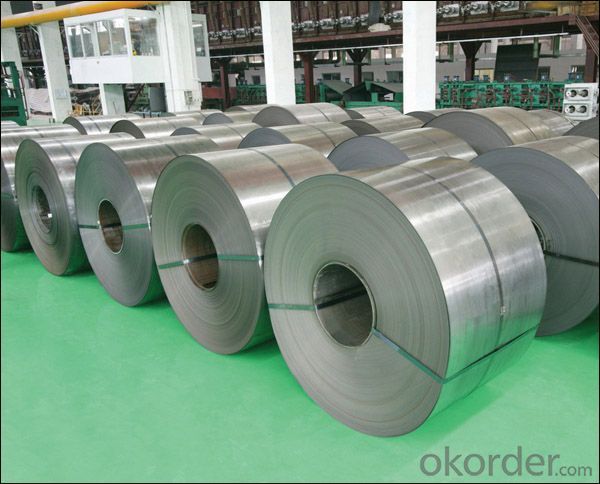
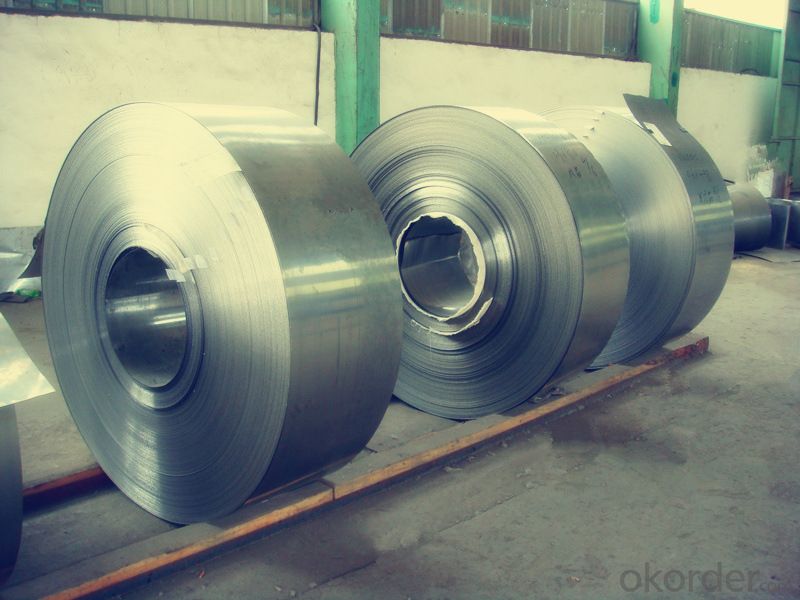
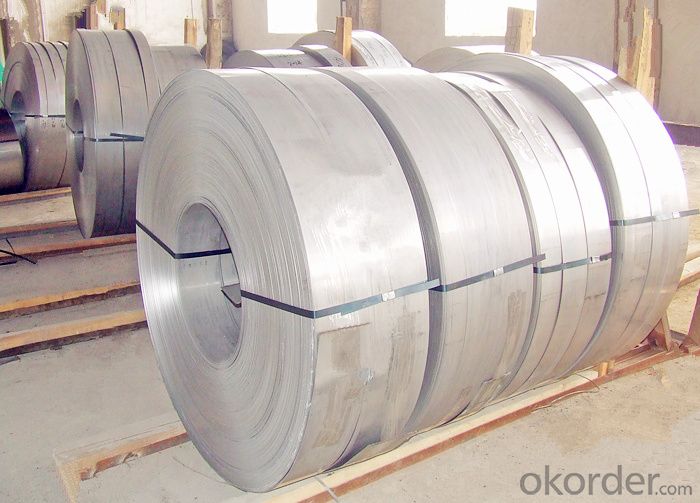
- Q: What are the applications of 111 stainless steel strips?
- 111 stainless steel strips have a wide range of applications in various industries. One major application is in the automotive industry, where these strips are used for manufacturing components such as exhaust systems, fuel tanks, and structural parts. The corrosion resistance and high strength properties of 111 stainless steel make it an ideal material for these applications, ensuring durability and longevity. Another application of 111 stainless steel strips is in the construction industry. They are commonly used for cladding, roofing, and flashing purposes due to their excellent resistance to corrosion, weathering, and fire. These strips provide a protective barrier against harsh environmental conditions, ensuring the longevity of buildings and structures. Additionally, 111 stainless steel strips find applications in the manufacturing of kitchenware and appliances. Their resistance to staining and corrosion makes them suitable for producing sinks, countertops, and other kitchen equipment. Moreover, they are used in the production of household appliances such as refrigerators, dishwashers, and ovens, where their durability and hygienic properties are crucial. In the medical field, 111 stainless steel strips are utilized in the manufacturing of surgical instruments, implants, and medical devices. The biocompatibility and corrosion resistance of this material are essential for ensuring the safety and long-term performance of medical equipment. Furthermore, 111 stainless steel strips are used in the energy sector, particularly in the production and transportation of oil and gas. They are commonly employed in pipelines, storage tanks, and offshore platforms due to their high strength, corrosion resistance, and ability to withstand extreme temperatures and pressures. Overall, the applications of 111 stainless steel strips are diverse and include automotive, construction, kitchenware, medical, and energy industries. The unique combination of properties offered by this material makes it a popular choice for various applications where strength, corrosion resistance, and durability are required.
- Q: Can stainless steel strips be powder coated?
- Yes, stainless steel strips can be powder coated. Powder coating is a popular method of applying a protective and decorative finish to various materials, including steel. The process involves applying a dry powder to the surface of the stainless steel strips and then curing it in an oven. This results in a durable and uniform coating that adheres well to the metal surface. Powder coating offers several benefits, such as resistance to chipping, scratching, and fading, as well as enhanced durability and corrosion resistance. It also provides a wide range of color options and can be used to achieve different finishes, such as glossy, matte, or textured.
- Q: What is the fracture toughness of stainless steel strips?
- The fracture toughness of stainless steel strips varies depending on the specific grade and composition of the stainless steel. Stainless steel is known for its high strength and toughness, making it resistant to fractures. However, the fracture toughness value can be influenced by factors such as the heat treatment, processing conditions, and any alloying elements present in the stainless steel. To determine the fracture toughness of a specific stainless steel strip, it is necessary to perform laboratory tests such as the Charpy or Izod impact tests or the J-integral test. These tests involve subjecting the material to controlled loading conditions and measuring the energy absorbed by the material before it fractures. The fracture toughness of stainless steel strips is typically characterized by the KIc value, which represents the critical stress intensity factor required for crack propagation. This value indicates the resistance of the material to fracture under a specific loading condition. Higher KIc values indicate greater fracture toughness. In general, stainless steel strips exhibit good fracture toughness due to their high strength and ductility. However, it is important to consider the specific grade and processing conditions of the stainless steel strip in order to accurately determine its fracture toughness.
- Q: What are the different surface finishes for stainless steel strips?
- There are several different surface finishes available for stainless steel strips, each offering unique characteristics and appearances. Here are some of the most common surface finishes for stainless steel strips: 1. No.1 Finish: This is the most widely used and basic finish for stainless steel strips. It has a rough, dull appearance with visible grinding marks. No.1 finish is often used for applications where aesthetics are not a priority, such as industrial components or structural parts. 2. 2B Finish: This finish is characterized by a smooth, reflective surface with a moderate level of gloss. It is achieved through a cold-rolling process, followed by annealing and descaling. 2B finish is commonly used in applications where a smooth and even surface is desired, such as kitchen appliances, architecture, and automotive trim. 3. No.4 Finish: Also known as brushed or satin finish, this surface treatment creates a soft, linear grain pattern on the stainless steel strip. It is achieved through polishing the strip with abrasive belts or brushes. No.4 finish is commonly used in decorative applications, such as furniture, handrails, and signage. 4. BA Finish: BA stands for Bright Annealed, and this finish offers a highly reflective, mirror-like surface. It is achieved through annealing the stainless steel strip in a controlled atmosphere, followed by a final polishing process. BA finish is often used for decorative purposes, such as architectural features, jewelry, and luxury consumer goods. 5. Electropolished Finish: This is a specialized surface treatment that involves immersing the stainless steel strip in an electrolyte solution and applying an electric current. Electropolishing removes a thin layer of material and leaves a smooth, shiny surface with enhanced corrosion resistance. This finish is commonly used in applications where hygiene and cleanability are essential, such as pharmaceutical equipment, food processing, and medical devices. These are just a few examples of the many surface finishes available for stainless steel strips. The choice of finish depends on the specific requirements of the application, including aesthetics, functionality, and corrosion resistance.
- Q: Are stainless steel strips resistant to chloride stress corrosion cracking?
- Generally, stainless steel strips exhibit resistance to chloride stress corrosion cracking. The corrosion resistance properties of stainless steel are widely recognized, encompassing resistance to chloride stress corrosion cracking. This is attributed to the abundance of chromium in stainless steel, which generates a protective oxide layer on the material's surface, prohibiting the infiltration of chloride ions and subsequent corrosion. Nevertheless, it is vital to acknowledge that the resistance to chloride stress corrosion cracking may fluctuate depending on the specific stainless steel type and grade, as well as the environmental conditions in which the material is exposed. Thus, it is always advisable to refer to the manufacturer's specifications and guidelines to ensure the appropriate stainless steel grade is chosen for the intended application.
- Q: Can 111 stainless steel strips be used in the chemical processing industry?
- Yes, 111 stainless steel strips can be used in the chemical processing industry.
- Q: Can stainless steel strips be used for chemical processing equipment?
- Yes, stainless steel strips can be used for chemical processing equipment. Stainless steel is a popular choice in the chemical industry due to its excellent corrosion resistance, high strength, and durability. It is resistant to many chemicals and can withstand harsh environments, making it suitable for various applications in chemical processing, such as storage tanks, reactors, piping systems, and heat exchangers. Stainless steel strips can be fabricated into different shapes and sizes, allowing for customized designs to meet specific process requirements. Additionally, stainless steel is easy to clean and maintain, ensuring hygienic and safe operation in chemical processing facilities.
- Q: Are stainless steel strips suitable for jewelry making?
- Indeed, stainless steel strips prove to be an ideal option for crafting jewelry. This material, known for its durability and versatility, exhibits remarkable resistance against tarnishing, rust, and corrosion, thus ensuring the longevity of the jewelry. Moreover, stainless steel possesses hypoallergenic properties, rendering it suitable for individuals with sensitive skin or allergies to metals. The flexibility of stainless steel strips facilitates their manipulation into diverse jewelry designs, encompassing rings, bracelets, necklaces, and earrings. Furthermore, stainless steel frequently serves as a cost-effective substitute for pricier metals such as silver or gold, enabling those with a desire for high-quality jewelry to acquire it at a more affordable price.
- Q: Can stainless steel strips be customized according to specific requirements?
- Certainly! Stainless steel strips have the capability to be personalized in accordance with specific needs. Stainless steel, being a flexible material, can be easily molded, trimmed, and modified into diverse forms and dimensions. This permits customization to fulfill particular requirements, including width, thickness, length, and surface quality. Furthermore, stainless steel strips can undergo additional customization through techniques such as slitting, edge treatment, and surface refinement to enhance their functionality and aesthetics. Regardless of whether it is for industrial, architectural, or decorative purposes, stainless steel strips can be meticulously tailored to precisely match the specifications and demands of a specific application.
- Q: Can stainless steel strips be used in the chemical manufacturing industry?
- Stainless steel strips have proven to be a valuable asset within the chemical manufacturing industry. This specific type of steel possesses exceptional corrosion resistance properties, making it an ideal option for environments where chemicals are prevalent. In the construction of chemical processing equipment, such as tanks, reactors, and piping systems, stainless steel strips are frequently utilized. The corrosion resistance of this material plays a crucial role in preventing any potential contamination of the chemicals being processed, thus ensuring the purity and integrity of the final product. Moreover, stainless steel strips exhibit remarkable resilience against high temperatures, enabling them to withstand the harsh conditions frequently encountered in chemical manufacturing processes. Furthermore, stainless steel boasts an advantage in terms of convenience, as it is easily cleaned and maintained. Consequently, this makes it a highly cost-effective and long-lasting choice for the chemical industry.
Send your message to us
Stainless Steel Coil 201 Hot / Cold Rolled Coil Narrow Coil
- Loading Port:
- Lianyungang
- Payment Terms:
- TT OR LC
- Min Order Qty:
- 400 m.t.
- Supply Capability:
- 5000 m.t./month
OKorder Service Pledge
OKorder Financial Service
Similar products
Hot products
Hot Searches
Related keywords
